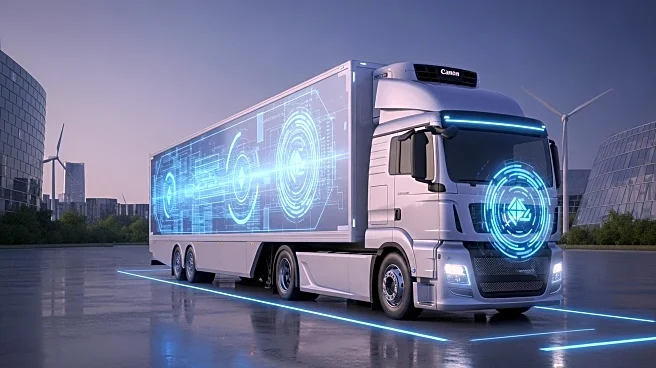What's Happening?
The refrigerated transport industry is facing increasing pressure to reduce emissions from diesel-powered engines while maintaining cargo integrity. Rypos, an environmental services company, has released a white paper detailing how diesel particulate filters (DPFs) and optimized practices can minimize environmental impact without compromising load integrity. The California Air Resources Board's Ultra-Low Emission TRU rule and the EPA's proposed Tier 5 standards are driving compliance changes. DPF retrofits offer a solution, reducing particulate emissions by up to 95% and providing immediate impact with minimal downtime.
Why It's Important?
The adoption of emission-reducing technologies in refrigerated transport is crucial for meeting regulatory standards and addressing public health and climate goals. The industry's carbon footprint is significant, and losing a single load can negate operational benefits. DPF retrofits provide a near-term solution, helping fleets comply with stricter regulations while maintaining reliability. This development underscores the importance of sustainability in the transport sector and the need for innovative solutions to balance environmental impact with operational efficiency.
Beyond the Headlines
The shift towards emission-reducing technologies in refrigerated transport reflects broader trends in sustainability and regulatory compliance. As electrification and zero-emission technologies become more prevalent, DPF retrofits serve as a bridge to future advancements. The industry's efforts to reduce emissions highlight the growing importance of environmental responsibility and the potential for long-term benefits in public health and climate change mitigation.











